- Home
- Roy J. Snell
The Magic Curtain Page 2
The Magic Curtain Read online
Page 2
CHAPTER II PETITE JEANNE'S MASQUERADE
Fifteen minutes after his disappearance into the shadows, the youth,still clad in a dress suit, might have been seen walking between themassive pillars that front the Grand Opera House. Despite the fact thathis small white hands clasped and unclasped nervously, he was able tomaintain a certain air of nonchalance until a figure, emerging from theshadow cast by a pillar, sprang toward him.
At that instant he appeared ready for flight. One glance at the other,and he indulged in a low chuckle.
"It is you!" he exclaimed.
"It is I. But what could have kept you?" The person who spoke was a girl.A large, strongly built person, she contrasted strangely with her slendercompanion.
"Circumstances over which I had no control," the youth replied. "But comeon!" He shuddered. "I am freezing!"
Having hurried west across the bridge, they entered a long concourse.From this they emerged into a railway station. Having crossed the waitingroom, the slim one entered an elevator, leaving the other to wait below.
When the slim one reappeared he was wrapped from head to toe in a greatblue coat.
"Ah, this is better, _ma chere_," he murmured, as he tucked a slender arminto his companion's own and prepared to accompany her into the chill ofnight.
The apartment they entered half an hour later was neither large nor new.It was well furnished and gave forth an air of solid comfort. The livingquarters consisted of a narrow kitchen and a fair-sized living-room. Ateither side of the living-room were doors that led each to a privateroom.
The big girl walked to the fireplace where a pile of kindling andfirewood lay waiting. Having touched a match to this pile, she stood backto watch it break into a slow blaze, and then go roaring up the chimney.
"See!" she exclaimed. "How cozy we shall be in just a moment."
"Ah, yes, yes, _mon ami_!" The slight one patted her cheek. "We shallindeed. But anon--"
The private door to the right closed with a slight rush of air. The slimone had vanished.
The stout girl's gown revealed a powerful chest. Every curve of herwell-formed body suggested strength, while the blonde-haired one, withall her slender shapeliness, seemed little more than a child--and a girl,at that. Yet, one cannot fully forget the dress suit that at this momentmust rest upon a hanger somewhere behind that closed door.
"Well, now tell me about it," said the stout one, as, some moments later,the blonde one reappeared in a heavy dressing gown and sat down beforethe fire.
"A pearl necklace was stolen," the slight one said in a quiet tone. "Itwas worth, oh, untold sacks of gold. _Mon Dieu!_ How is one to say howmuch? Since I was near, I was suspected. Who can doubt it? I bolted. Inthe darkness I concealed myself in the drapes that seemed to hide awindow and did not."
"But why did you run? You could not have done worse."
"But, _mon Dieu_! There was talk of searching us. Could I be searched?"
"No." A broad smile overspread the stout girl's face. "No, you couldnot."
"Ah, my good friend! _Ma chere!_ My beloved Florence." The slender onepatted the other's cheek with true affection. "You agree with me. Whatelse can matter? You have made me happy for all my life."
So now you know that this large, capable girl is none other than an oldfriend, one you have met many times, Florence Huyler. But wait, there isstill more.
"But how now is it all to end?" Two lines appeared between the largegirl's eyes.
"I shall return!" the other exclaimed. "Tomorrow night I shall go back. Imust go! It is too wonderful for words. All the rich, the great ones. Thesable coats, the gowns, the rare jewels. And the stage! Oh, my friend,how perfectly exquisite, how glorious!"
"Yes, and they'll arrest you." The large girl's tone was matter-of-fact."And what will you see after that?"
"For what will they arrest me? Did I take the necklace? No! No! Nevair!"
"But you ran away."
"Yes, and for a very good reason." A faint flush appeared on the slimone's cheek. "I could not be searched."
"And will you tell them why?"
"Oh, no!"
"Then how can you go back?"
"Listen, my friend." The slim one laid an impressive hand on the other'sarm. "Sometimes we have good fortune, is it not so? Yes. It is so. Theyoung lady, that girl who lost the necklace, she will be there. She iskind. Something tells me this. She will not have Pierre Andrews arrested.Something tells me so. For look, now, as Pierre I am--how did you sayit?--very handsome!"
"But, Petite Jeanne!" Florence broke short off. By this exclamation shehad betrayed a secret. Since, however, only the walls and her companionheard it, it did not much matter. Our old friend, Petite Jeanne (thelittle French girl), and Pierre Andrews are one and the same person. Onthe stage Jeanne had played many a role. Now she was playing one in reallife and playing it for a grand prize.
* * * * * * * *
But we must go back a little. Petite Jeanne, as you will recall if youhave read that other book, _The Gypsy Shawl_, was a little French girlfound wandering with the gypsies among the hills of France. Brought by arich benefactress to America, she had made a splendid showing on thestage as a star in light opera.
All stage productions, however, have their runs and are no more. PetiteJeanne's engagement had come to an end, leaving her with a pocketful ofmoney and one great yearning, a yearning to have a place upon the stagein Grand Opera.
This longing had come to her through contact with a celebrated operastar, Marjory Dean. Through Marjory Dean she had secured the services ofa great teacher. For some time after that she had devoted her entire timeto the mastering of the technique of Grand Opera and to the business ofdeveloping her voice.
"You will not go far without study abroad," Marjory Dean had warned her."Yet, who knows but that some golden opportunity may come to you? Youhave a voice, thin to be sure, but very clear and well placed. What isstill more, you have a feeling for things. You are capable of inspiringyour audience with feelings of love, hate, hope, despair. This will carryyou far."
"And I shall work! Oh, how I shall work!" Jeanne had replied.
That had been months ago. But teachers must be paid. Jeanne's pocketfulof money no longer weighed her down. Then, too, times were hard. Thelittle French girl could make people feel the things she did on the stagebecause she, too, had a warm heart. She could not resist wandering fromtime to time into the tenement districts where dwelt her gypsy friends.There she found poverty and great need. Always she came away with anempty purse. On Maxwell Street it was no better.
"I shall apply for work," she had told Florence at last.
"But what can you do?"
"I can act. I can sing."
"But no one wants you to act or sing."
"On the stage," Jeanne had shrugged, "perhaps no. But in life one mayalways act a part. I shall act. But what shall I be?"
"There, now!" she had cried a moment later. "I shall be a boy. I shallbecome an usher, an usher in Grand Opera. If I may not be on the stage, Imay at least spend every night in the aisles. I shall see all the operas,and I shall earn a little."
"But, Petite Jeanne!"
"No! No! Do not resist me!" Jeanne had cried. "I will do it. I must! Itis my soul, my life, the stage, the opera. Hours each day I shall be nearit. Perhaps I may steal out upon the stage and sing an aria when the hallis dark. Perhaps, too, I shall meet Marjory Dean, the great one this cityadores.
"And who knows," she had clasped her hands in ecstasy, "who knows butthat in some mysterious way my opportunity may come?"
* * * * * * * *
"My opportunity," she thought now, as, sitting before the glowing fire,she contemplated the future, "appears to be a bed in jail. But whoknows?"
Jeanne refused to be depressed. Casting off her dressing gown, she sprangaway in a wild dance as she chanted:
"Now I am Pierre, Now I am Jeanne. To-night I s
leep on eiderdown, To-morrow I am in jail.
"Oh, sweet mystery of life."
Her voice rang out high and clear. Then, like the flash of sunshineacross the brow of a hill, her mood changed.
"To-morrow!" she exclaimed, dropping into the depths of a great chair bythe fire. "Why think of to-morrow? See! The tea kettle sings for us. Whynot one good cup of black tea? And then--sweet dreams."
A moment later there was a clinking of thin china cups. A belatedmidnight lunch was served.
An hour later, as Petite Jeanne twisted her pink toes beneath hersilk-covered eiderdown, brought all the way from her beloved France, shewhispered low:
"To-morrow!"
And after a time, once again, faint, indistinct like a word from a dream:
"To-morrow."

 On the Yukon Trail
On the Yukon Trail Wings over England
Wings over England Johnny Longbow
Johnny Longbow Sally Scott of the WAVES
Sally Scott of the WAVES The Secret Mark
The Secret Mark Betty Leicester's Christmas
Betty Leicester's Christmas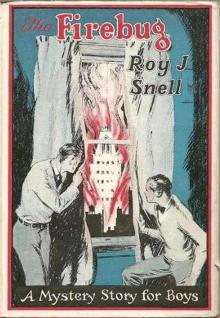 The Firebug
The Firebug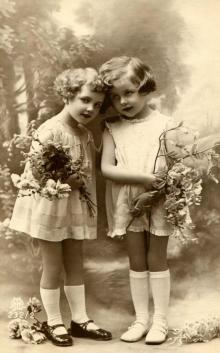 Minnie Brown; or, The Gentle Girl
Minnie Brown; or, The Gentle Girl Jack the Hunchback: A Story of Adventure on the Coast of Maine
Jack the Hunchback: A Story of Adventure on the Coast of Maine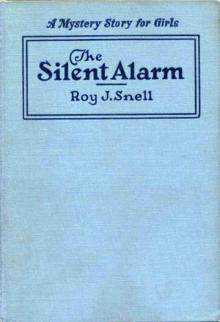 The Silent Alarm
The Silent Alarm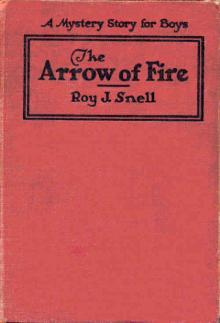 The Arrow of Fire
The Arrow of Fire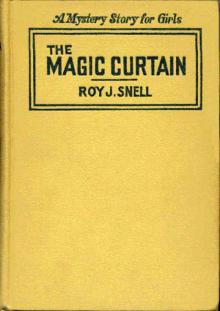 The Magic Curtain
The Magic Curtain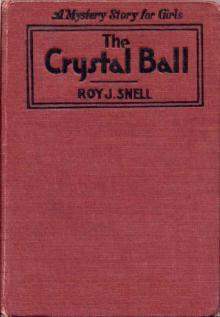 The Crystal Ball
The Crystal Ball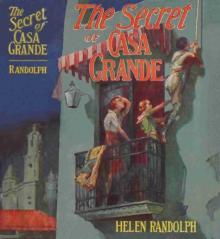 The Secret of Casa Grande
The Secret of Casa Grande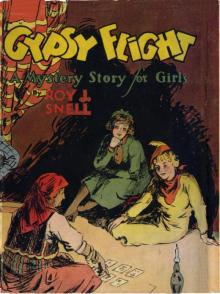 Gypsy Flight
Gypsy Flight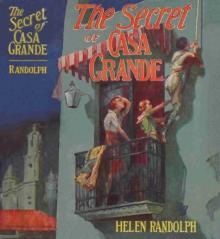 The Mystery of Carlitos
The Mystery of Carlitos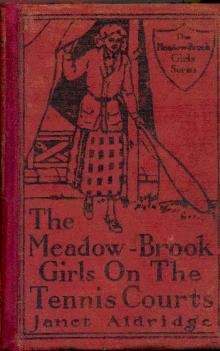 The Meadow-Brook Girls on the Tennis Courts; Or, Winning Out in the Big Tournament
The Meadow-Brook Girls on the Tennis Courts; Or, Winning Out in the Big Tournament Witches Cove
Witches Cove Riddle of the Storm
Riddle of the Storm Forbidden Cargoes
Forbidden Cargoes Green Eyes
Green Eyes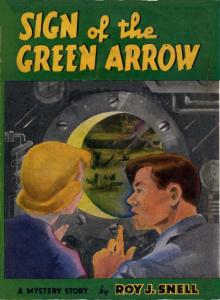 Sign of the Green Arrow
Sign of the Green Arrow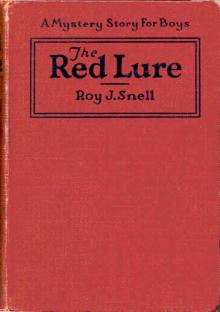 The Red Lure
The Red Lure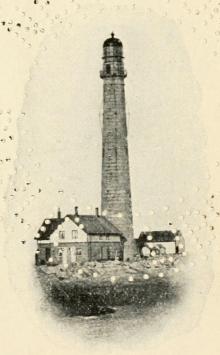 The Light Keepers: A Story of the United States Light-house Service
The Light Keepers: A Story of the United States Light-house Service A Ticket to Adventure
A Ticket to Adventure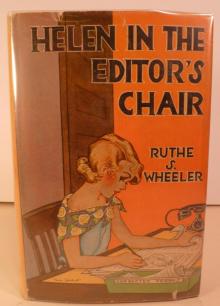 Helen in the Editor's Chair
Helen in the Editor's Chair Blue Envelope
Blue Envelope The Purple Flame
The Purple Flame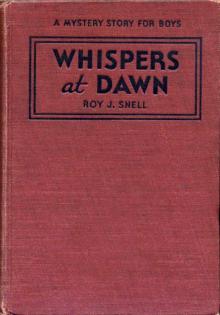 Whispers at Dawn; Or, The Eye
Whispers at Dawn; Or, The Eye The Rope of Gold
The Rope of Gold Crossed Trails in Mexico
Crossed Trails in Mexico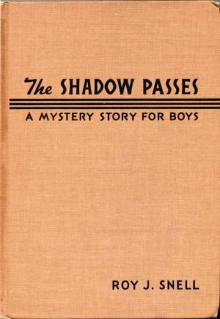 The Shadow Passes
The Shadow Passes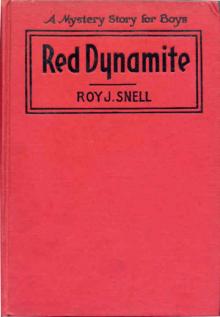 Red Dynamite
Red Dynamite Blue Grass Seminary Girls on the Water
Blue Grass Seminary Girls on the Water The Cruise of the O Moo
The Cruise of the O Moo